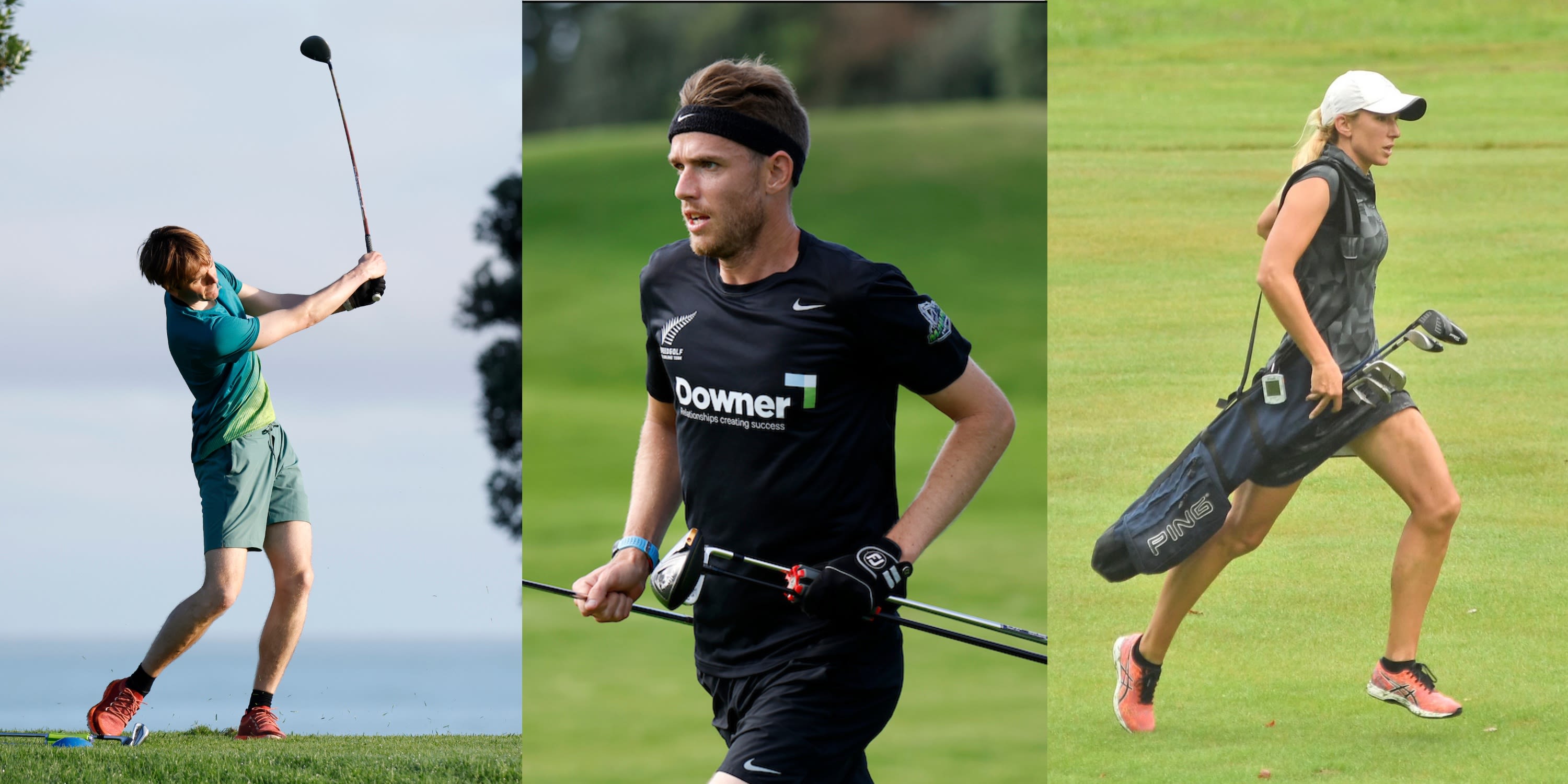
By Ben Fleming
As Lilia Vu secured her first-hole playoff victory against Angel Yin to win the Chevron Championship in Houston, on the other side of the world, Jamie Reid wrapped up a hometown win at the New Zealand Open.
Vu’s triumph saw the 26-year-old claim her first major championship and cemented her name as one of the game’s rising stars.
Reid is no rising star, however. He is a star already. A comprehensive win at Fitzroy, his home course, saw the world number one add his fifth New Zealand Open to his ever-growing trophy cabinet.
Despite their different journeys to victory last month, Vu and Reid have plenty in common. They play the same sport after all. But while Vu’s final-round 68 took her more than five hours to complete, Reid’s final-round 70 lasted just 32 minutes and 51 seconds.
How did he manage that, one might ask.
Well, Jamie Reid is the best male speedgolfer in the world and his journey began seven years ago at the very same tournament.
Jamie Reid
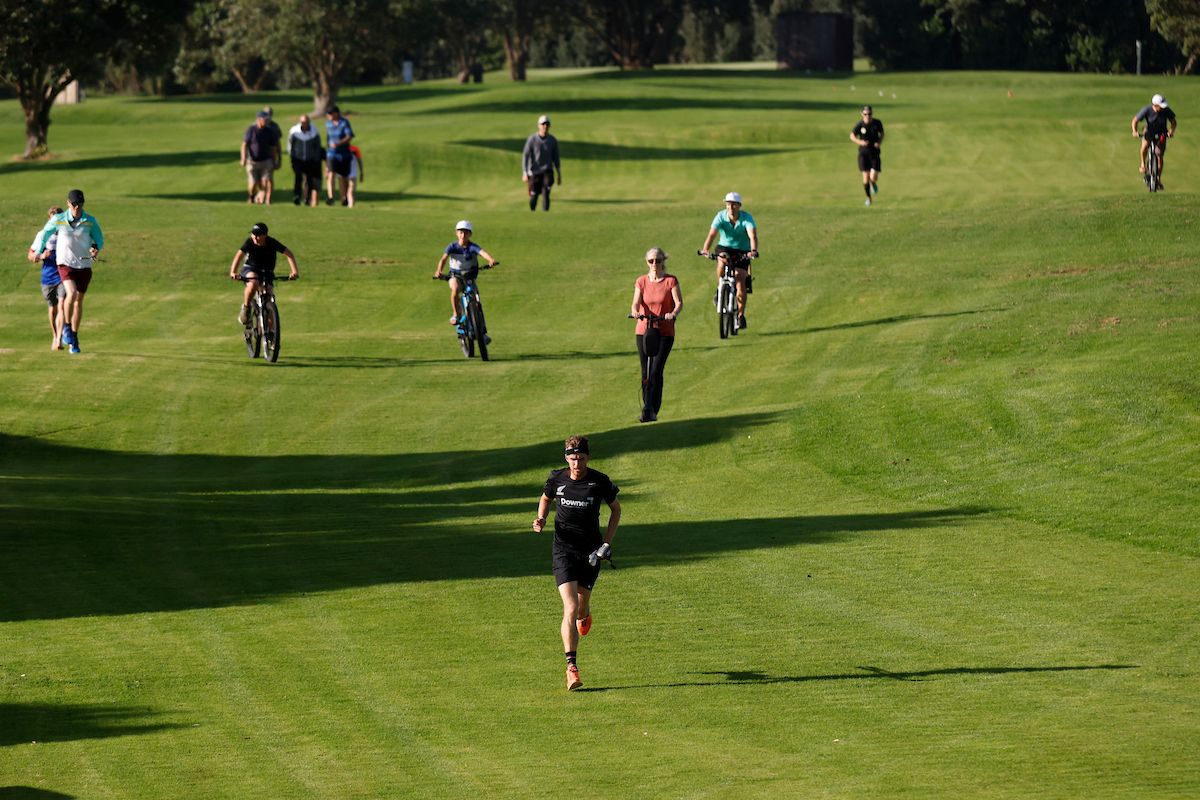
“It was a complete accident,” Reid jokes. “I saw a poster at my local club advertising the New Zealand Speedgolf Open. At that stage I didn't run, I just kept fit from other sports and I thought ‘I’ll just give this a go.’
“I came third in 2017 without any training and thought: ‘S*** if I can come third without any training then maybe I should put some work in and see what I can do in one year.’ In 2018, I went over to America and came second in the US Open, the World Championships and the World Team Championships - since then, I’ve been pretty much undefeated.”
As the name suggests, speedgolf offers a quicker version of the traditional game. For competitors, the objective is simple: shoot the lowest round in the quickest time with your total score a combination of the two.
To maximise their performance and better their scores, speedgolfers have to make sacrifices. Running between every shot, doing away with practice swings and getting rid of clubs are some of the measures all players adopt.
Reid doesn’t even use a putter when he competes and carries just three clubs - a driver, seven iron and wedge - but believes the added restrictions imposed on him by speedgolf’s seven-club limit have done nothing but improve his overall golfing game.
“I can now hit so many different shots with the same club,” he explains. “You have to learn to hit your seven iron 120 yards as well as 190 yards - how to hook and fade the ball, how to hit low and high. That variability and creativity are only going to improve your golf game.
“I’d love to have a putter, There’s no denying I’d putt better with one but it’s all about the margins. In speedgolf, the main thing is to two-putt when you are on the greens. You don't have time to line it up or to work out where the break is. It’s just about getting it close, tapping in and getting on to the next hole.”
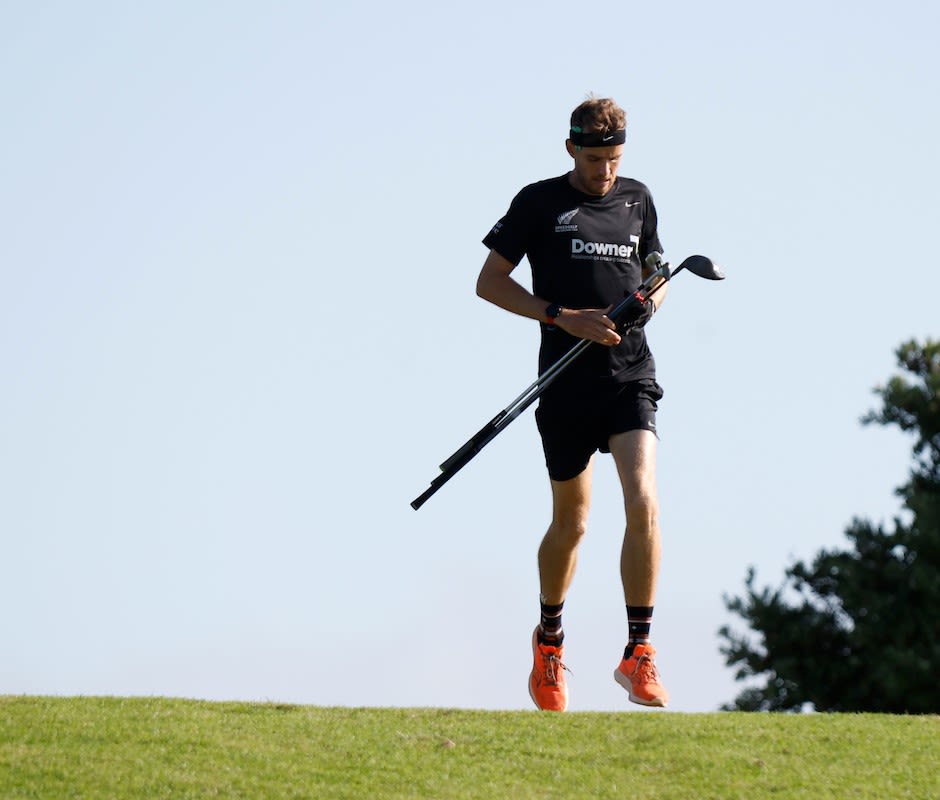
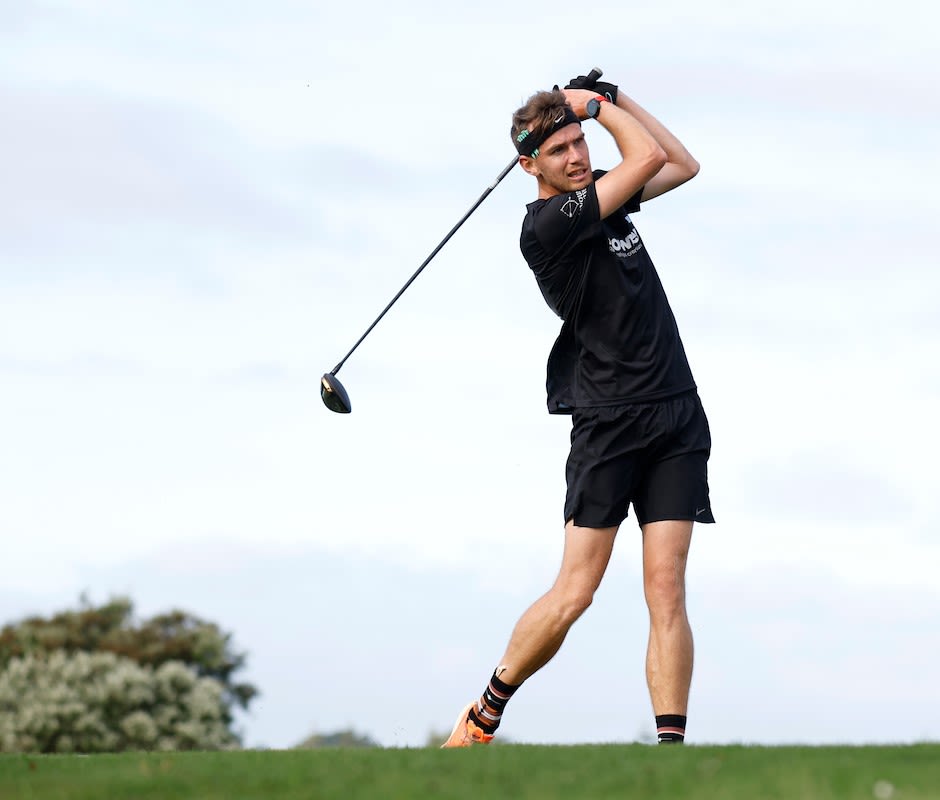
With little to no funding from national bodies and coronavirus restrictions preventing travel, international speedgolf tournaments have been difficult to participate in for Reid over the last few years.
Despite this, the 31-year-old Kiwi - who works full-time as a Maths teacher - has managed to build up an impressive trophy cabinet with three national titles as well as victories in the 2019 Finnish and British Open.
His defining moment came last November when Reid returned to the US for the first time since 2018 to win the 2022 World Championship and World Cup Team Championship in the same week. Those achievements would see him nominated for the New Zealand Sportsman of the Year at the 2022 Halberg Awards alongside the likes of All-Black Ardie Savea and four-time Commonwealth Games champion Aaron Gate.
What is the secret to dominating the sport? For Reid, who won last year’s World Championships by 19, the answer is simple - running. And plenty of it.
Reid on his record-breaking ambitions within the sport
Reid on his record-breaking ambitions within the sport
“Since 2018 I’ve trained the house down and ran basically every day,” he says.
“My running has improved hugely over the last four years. I’m hitting a 33-minute 10k while most people in the top ten will struggle to run under 40 minutes.
“If I’m picking up ten minutes over someone in the running then that is a hard ask for them to claw that back in shots. I’ve got myself in a position where even if I play poor golf then my running can counteract that quite easily.”
For now, Reid’s biggest opponent is the history books as he looks to beat the men's world record score of 107.15 (65 in 42:15 mins) set by American Scott Dawley at the 2021 US Speedgolf Open. The world number one has scored lower on five occasions, including a 100.18 (69 in 31:18 mins) at last year’s New Zealand Open but never on a course longer than 6,000 yards, the required length for a world record attempt.
“I’m close to it and that’s the main focus now,” he says.
“To have the world number one ranking, the World Championship and the world record score would be pretty special."
Lauren Cupp
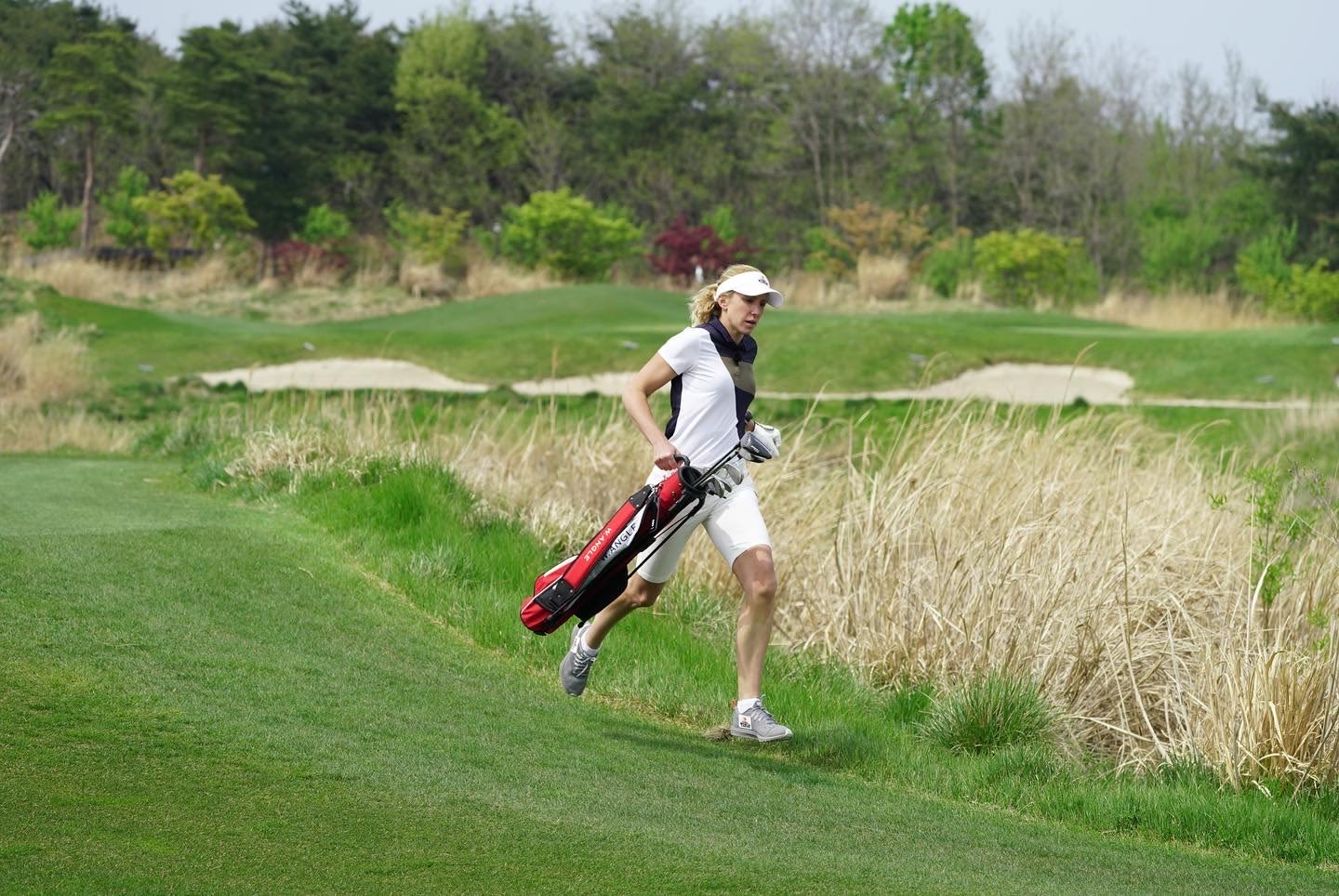
Like Reid, Lauren Cupp’s discovery of speedgolf was completely by chance. However, unlike the Kiwi, the woman’s world number one speedgolfer did not take naturally to the sport.
“I stumbled across it on Youtube at first and my instincts were ‘Oh, I gotta give this a try,’” Cupp recalls.
“I ran track and field in college and played golf competitively so it felt like a nice mix for me. I went out that night with some buddies, played nine holes and hated every second of it.
“The competitor in me hated the score I shot that evening and I was just too stubborn to let it go. I worked on it, got a hell of a lot better and now the sport is something that kind of defines me.
“It’s more reactive than regular golf, more like other sports, and a true athletic endeavour which is something that I like. Being an athlete again in those moments is valuable to me.”
Soon after picking up the sport, the American began to assert herself as one of the speedgolf premier female athletes. In 2018, Cupp won the US and World Speedgolf Championships before capturing the Japanese Speedgolf Open the following year.
Cupp was unable to retain her World Championship in Florida last year - losing by just 48 seconds to Finland's Milla Hallanoro - but remains proud of her achievement and excited by the opportunities the sport continues to offer her.
Cupp on travelling the world playing speedgolf
Cupp on travelling the world playing speedgolf
Despite her overseas adventures, Cupp’s proudest moment in speedgolf took place on home soil at the New York Speedgolf Open on a course down the road from where she lives. It was there at Teugega golf course, she would shoot a one-under-par 72 in just 50 minutes and 48 seconds to set a new women's world record score of 122.48 and smash the previous record of 126:41 set by New Zealand’s Liz McKinnon.
“It’s a prestigious Donald Ross design and a difficult course but I just had an amazing round,” she says. “My whole hometown was there, my family and friends as well so it was an awesome experience.”
Cupp manages her speedgolf career alongside a full-time job as head men’s and women’s golf coach at Hamilton College. Having spent most of her professional career teaching young golfers about the importance of patience, she now sees the benefits of speedgolf in how she coaches the next generation of golfers.
“I use a lot of the lessons that I have learnt through playing quickly with my golf teams,” she says.
“We are very lucky with the technology we have nowadays: simulators, trackman and everything else which is great. It’s really helpful but at the same time, you can get caught up in the numbers which this technology gives you.
“When you are playing in a tournament all that is stripped away and you just have to hit the shot. I try and teach my golfers to embrace that and realise it only takes one good shot per hole to make a par. When you think about it like that it can free you up to play your best.”
Despite the trophies, world records and new coaching perspective speedgolf has gifted her, Cupp is most grateful for the sense of balance the sport offers her. The opportunity to pursue her job, to be there for her kids and to continue playing the game she loves.
“I found speedgolf at the perfect time in my life,” the mother-of-three says. “I was a new mum, I had a new job but I still wanted to play golf because it’s such a big part of me. I was finding I didn’t have the time but that’s not the case now.
“I can go out first thing in the morning and be back for the school run or in the early evening and be home for dinner - it’s perfect in that sense.
“I would love people to give it a try. I haven't heard from anybody that has given it a try that hasn’t loved it.”

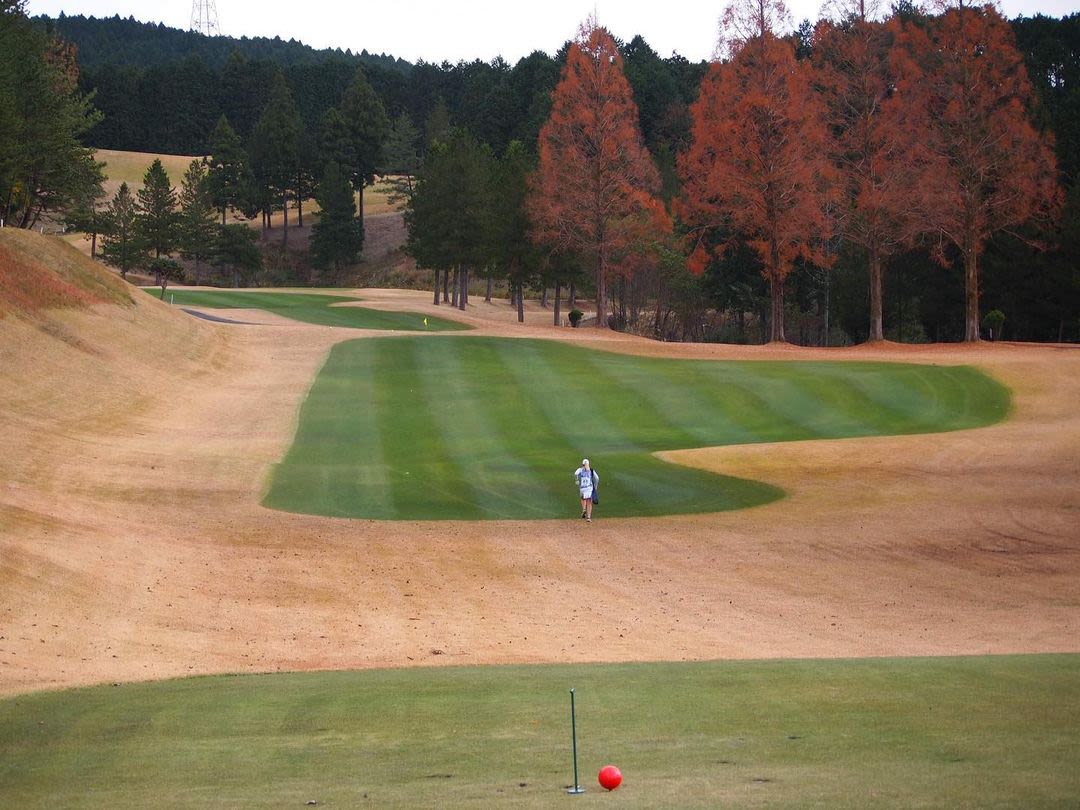
Luke Willett
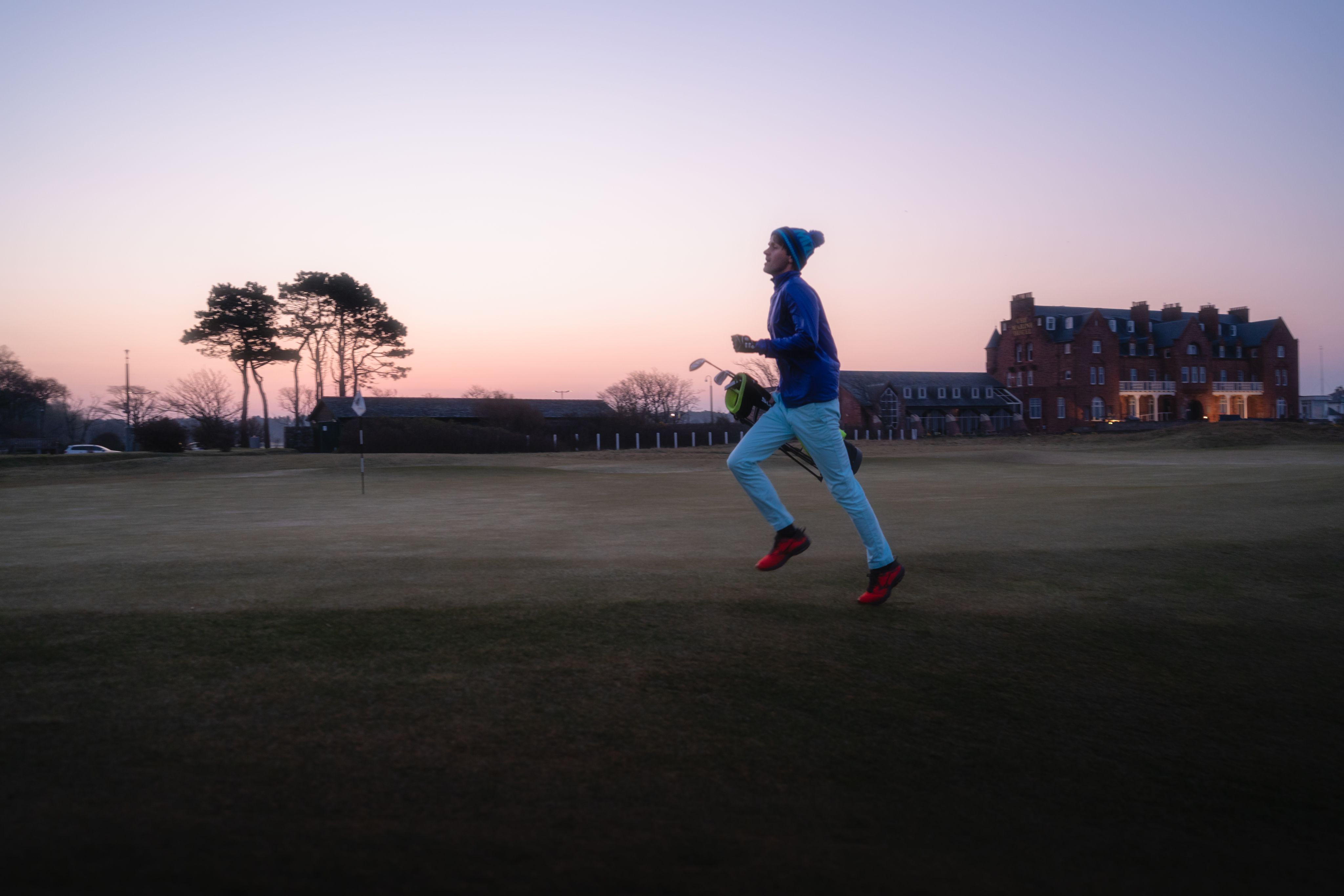
Luke Willett always had a love for exploration. When he isn’t working as a PGA professional, the Englishman can be found scaling mountings or cycling across the UK.
"I’m an outdoor lover, ‘Mr. no stone unturned,’” he says. “I never feel more alive and more connected when everything else is disconnected.”
So when a member at Willett’s club, Sunningdale Heath, mentioned a Times article about speedgolf, he knew he had to give it a try. Golf course availability means a round of speedgolf can’t usually be played in the middle of the day with regular golfers also on the course, but Willett has learned to embrace the cold starts and early mornings.
Alongside the rush of the early mornings, Willett acknowledges the transformative effect that speedgolf has had on his relationship with golf more generally. Having lost sight of his childhood love for the sport, he is now fueled by an ardent desire to become the world’s best speedgolfer.
“I did lose love with the sport,” he says. “I was struggling as a family man to find the time. For me, it was always important for me to be at home with my wife and children and then deliver by doing good work and putting food on the table and I didn’t have much time for golf which was crazy as a golf pro.
“It was that struggle that lead me to question things. With speedgolf, I can now play four times a week and also have that balance.
“My passion for the sport is back at the same level it was when I was younger dreaming about being Europe’s best player. Now it’s about becoming the best speedgolfer in the world which I will be.
“It’s exciting stuff to look at the future in that kind of way - it puts a spring in your step.”
Chasing that goal has taken Willett around the world competing alongside Reid and Cupp in many of speedgolf’s premier tournaments. The Englishman finished 10th at last year’s World Championships and recently travelled to New Zealand to compete in their national open.
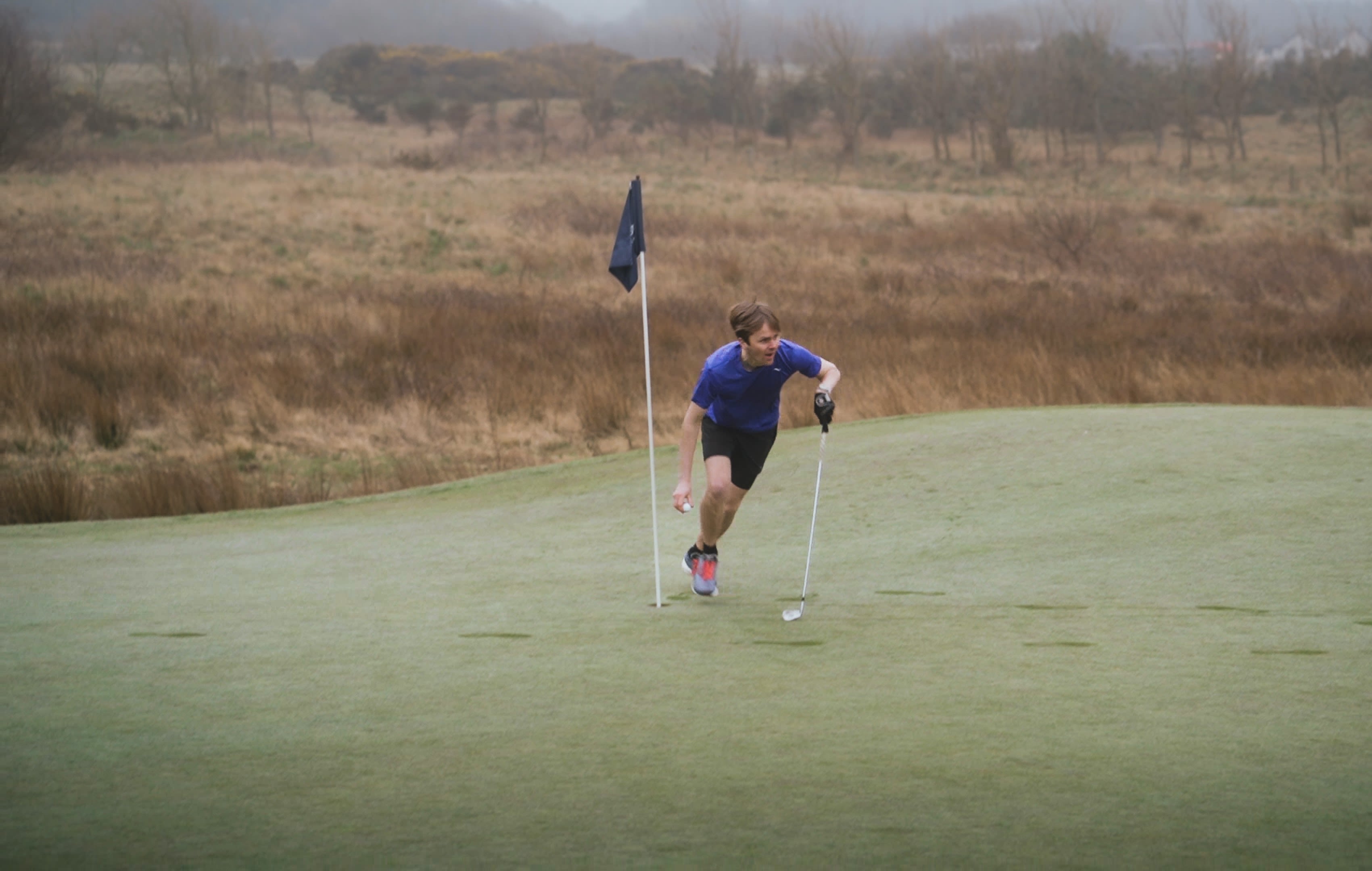
Closer to home, Willett has also enjoyed great opportunities with the sport. In 2021, he won the British Speedgolf Open and last year embarked on his ‘marathons of golf’ charity project which saw him run a marathon and play a round of speedgolf at each of the 14 venues to have ever hosted the Open Championship.
Why run when you could savour such historic golf courses?
“To play fast is to truly enjoy a round of golf because I can’t be distracted,” Willett argues.
“If I’m playing fast I can’t be aware of my council tax bill or the fact my kids have exams, I’m laser-focused on what is in front of me. If you’re playing a really good golf course, ironically I would say that it is better to play fast. Your mind is blinkered and all you can take in is the golf course and the beautiful scenery.”
That sense of exploration is at the heart of Willett’s love for speedgolf and as he looks ahead at his goal to become the sport’s best, he is excited by the adventures to come.
“The thing I love about adventure is the unknown,” he says.
“You can’t fail in the unknown because it’s never been done before - it would be worse if I didn’t do it in the first place. That’s why I have these high goals - it’s not a question of now, it’s a question of when and we're going to keep going and exploring until we get there.”
Speedgolf remains a niche within the larger golfing universe. Moving forward, Reid believes it should replace regular golf at the Olympics while Cupp is adamant the sport could be vital in engaging youngsters with golf.
A lack of funding and golf course restrictions may ultimately hamper that potential growth but that doesn’t necessarily matter. Sport is what you make it - a chance to break records, a chance to make memories, a chance to explore. In that sense, speedgolf has already been the vehicle for these three and no doubt countless others who try it in the future.
“It’s like collecting wine,” Willett ends.
“Wine is a good thing to collect because if it doesn’t go up in value then you can just drink it. That’s what speedgolf is for me. I would love to see it grow but if it doesn’t it’s okay because I’m having so much fun playing it.
“It’s made me a better dad, it’s made me a better golfer it’s made me a better person. So, worst-case scenario it doesn’t grow and I’ve still had the time of my life.”
Images courtesy of Jamie Reid, Lauren Cupp and Luke Willett